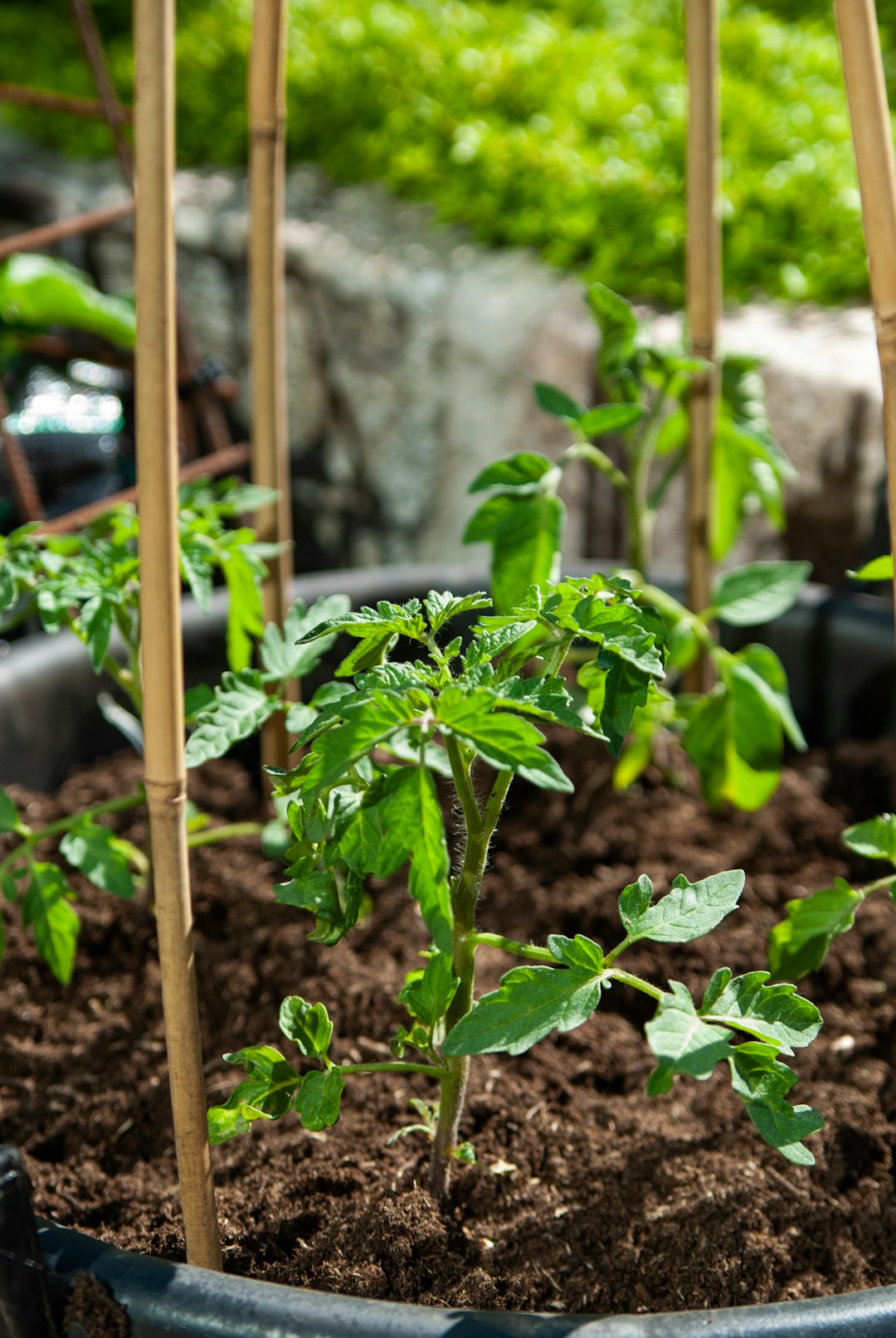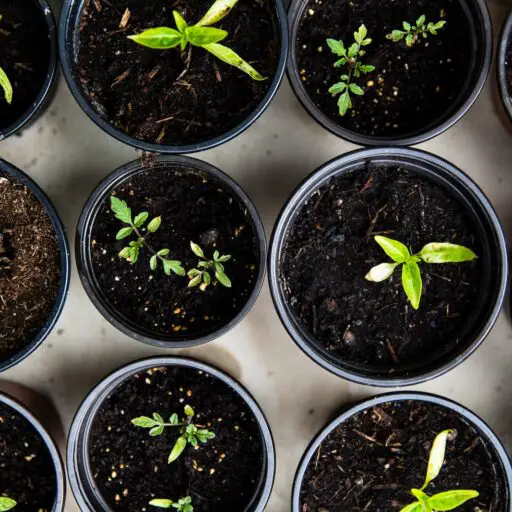Support our educational content for free when you purchase through links on our site. Learn more
Quick Answer: Gardening offers numerous benefits for the environment, including promoting biodiversity, reducing carbon footprint, conserving water, and improving air quality. By creating green spaces and growing plants, you can contribute to a healthier planet and a more sustainable future. Check out our recommended gardening products to get started!
Gardening is not just a hobby or a way to beautify your surroundings; it also has significant benefits for the environment. Whether you have a small backyard garden or a community garden plot, your gardening efforts can make a positive impact on the planet. In this article, we will explore the various ways in which gardening benefits the environment and why it is crucial for a sustainable future. So grab your gardening gloves and let’s dig in!
Table of Contents
- Quick Answer
- Quick Tips and Facts
- Background: The Role of Gardening in Environmental Conservation
- Promoting Biodiversity
- Reducing Carbon Footprint
- Conserving Water
- Improving Air Quality
- Supporting Pollinators
- FAQ
- Conclusion
- Recommended Links
- Reference Links
Quick Answer
Gardening offers a multitude of benefits for the environment, including:
✅ Promoting biodiversity by creating habitats for various plant and animal species.
✅ Reducing carbon footprint by sequestering carbon dioxide and reducing the need for transportation of produce.
✅ Conserving water through efficient irrigation methods and rainwater harvesting.
✅ Improving air quality by absorbing pollutants and releasing oxygen.
✅ Supporting pollinators, such as bees and butterflies, by providing them with a source of food and habitat.
By engaging in gardening activities, you can actively contribute to a healthier planet and a more sustainable future. Check out our recommended gardening products to get started!
👉 CHECK PRICE on: Gardening Tools | Seeds | Planters | Compost Bins | Rain Barrels
Quick Tips and Facts
Before we dive into the details, here are some quick tips and facts about the benefits of gardening for the environment:
🌿 Did you know that a single tree can absorb up to 48 pounds of carbon dioxide per year? Imagine the impact of a whole garden!
🌿 Native plants are essential for supporting local wildlife, as they provide food and shelter for native species.
🌿 Composting kitchen scraps and yard waste can reduce the amount of organic waste that ends up in landfills, where it produces harmful greenhouse gases.
🌿 Watering your garden in the early morning or late evening can minimize water loss due to evaporation.
🌿 Bees and other pollinators are responsible for pollinating approximately 75% of the world’s food crops. By creating a pollinator-friendly garden, you can help ensure food security.
Now, let’s explore the benefits of gardening for the environment in more detail.
Background: The Role of Gardening in Environmental Conservation

Gardening has been a part of human civilization for thousands of years. Initially, it served as a means of sustenance, providing food and medicinal plants. However, with the advent of modern agriculture and urbanization, the focus shifted towards decorative spaces. Today, gardening has evolved into a multifaceted activity that encompasses both practical and aesthetic aspects.
In recent years, there has been a growing recognition of the potential of home gardens and community gardens in promoting sustainable development. Sustainable development aims to balance social-economic development with a healthy environment. It encompasses economic, social, and environmental dimensions, with urban and suburban green spaces playing a crucial role in achieving these goals.
1. Promoting Biodiversity
One of the most significant benefits of gardening for the environment is its ability to promote biodiversity. Biodiversity refers to the variety of plant and animal species in a particular ecosystem. By creating green spaces and growing a diverse range of plants, you can provide habitats for various species, including birds, butterflies, bees, and beneficial insects.
✅ Tip: Plant native species in your garden to support local wildlife. Native plants are adapted to the local climate and provide food and shelter for native species.
Gardens that incorporate a variety of plants, including flowers, shrubs, and trees, create a more diverse and resilient ecosystem. This diversity attracts a wide range of pollinators and beneficial insects, which play a crucial role in maintaining the health of the ecosystem. Additionally, a biodiverse garden is more resistant to pests and diseases, reducing the need for harmful pesticides.
2. Reducing Carbon Footprint
Another significant benefit of gardening for the environment is its potential to reduce carbon footprint. Carbon footprint refers to the amount of greenhouse gases, primarily carbon dioxide, emitted as a result of human activities. These emissions contribute to climate change and global warming.
✅ Fact: The transportation of produce from farms to consumers accounts for a significant portion of carbon emissions in the food system.
By growing your own food in a garden, you can reduce the need for transportation and the associated carbon emissions. Additionally, plants absorb carbon dioxide from the atmosphere during photosynthesis, helping to mitigate climate change. The more plants you grow, the more carbon dioxide they can sequester.
3. Conserving Water
Water scarcity is a pressing issue in many parts of the world. By practicing water-efficient gardening techniques, you can contribute to water conservation efforts.
✅ Tip: Water your garden in the early morning or late evening to minimize water loss due to evaporation.
Implementing efficient irrigation methods, such as drip irrigation or soaker hoses, can significantly reduce water usage compared to traditional sprinkler systems. Collecting rainwater in barrels or using rain gardens can also help conserve water by providing a sustainable source of irrigation.
4. Improving Air Quality
Air pollution is a global problem that affects both human health and the environment. Gardening can play a role in improving air quality by absorbing pollutants and releasing oxygen.
✅ Fact: Trees and plants act as natural air filters, removing pollutants such as carbon monoxide, nitrogen dioxide, and particulate matter from the air.
By planting trees, shrubs, and other greenery, you can help create a cleaner and healthier environment. Urban gardens, in particular, can have a significant impact on air quality in densely populated areas.
5. Supporting Pollinators
Pollinators, such as bees, butterflies, and hummingbirds, play a crucial role in the reproduction of flowering plants. However, their populations have been declining due to habitat loss, pesticide use, and climate change. Gardening can provide a lifeline for these essential creatures.
✅ Tip: Plant a variety of flowers that bloom at different times of the year to provide a continuous source of nectar for pollinators.
By creating a pollinator-friendly garden, you can provide a source of food and habitat for bees and other pollinators. Choose plants that are rich in nectar and pollen, and avoid using pesticides that can harm these beneficial insects.
FAQ

Why is gardening good for the environment?
Gardening is good for the environment because it promotes biodiversity, reduces carbon footprint, conserves water, improves air quality, and supports pollinators. By creating green spaces and growing plants, you can actively contribute to a healthier planet and a more sustainable future.
Read more about “What are the Disadvantages of Community Gardens? … 🌱”
How does growing plants help the environment?
Growing plants helps the environment by absorbing carbon dioxide, reducing the need for transportation of produce, conserving water, improving air quality, and providing habitat for wildlife. Plants play a crucial role in mitigating climate change, promoting biodiversity, and creating a more sustainable ecosystem.
Read more about “How do gardens help the environment? … 🌿”
Why is gardening good for the world?
Gardening is good for the world because it has numerous environmental benefits, such as promoting biodiversity, reducing carbon footprint, conserving water, improving air quality, and supporting pollinators. By engaging in gardening activities, individuals can make a positive impact on the planet and contribute to a more sustainable future.
How does gardening help the community?
Gardening helps the community by creating green spaces, promoting social interaction, providing access to fresh and nutritious food, and improving the overall well-being of community members. Community gardens, in particular, foster a sense of belonging and empowerment, while also addressing food security and environmental issues.
Read more about “Why is a Community Garden Important to the Community? … 🌱”
Conclusion

Gardening offers a multitude of benefits for the environment, including promoting biodiversity, reducing carbon footprint, conserving water, improving air quality, and supporting pollinators. By engaging in gardening activities, you can actively contribute to a healthier planet and a more sustainable future.
So, whether you have a small backyard garden or participate in a community garden, remember that your gardening efforts have a significant impact. By creating green spaces, growing a diverse range of plants, and implementing sustainable gardening practices, you can make a positive difference in the world.
Now, it’s time to get your hands dirty and start gardening for the environment!
Recommended Links
👉 CHECK PRICE on: Gardening Tools | Seeds | Planters | Compost Bins | Rain Barrels
For further reading on related topics, check out these articles on Community Gardening™:
- Benefits of Community Gardens
- Community Garden Events
- Community Garden Policies
- Gardening for Beginners
- Therapeutic Benefits of Gardening
Reference Links
For more information on the contribution of home gardens to sustainable development and related topics, refer to the following reputable sources:


